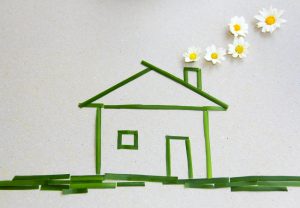Did you know that your HVAC system drains more energy dollars than any other system in your home? Considering that the average American household spends at least $2,000 a year on energy bills, according to the U.S. Department of Energy, there’s a lot of room for potential savings when you perform energy-conscious upgrades like green HVAC installation. Here are a few reasons why you may want to make the switch to a more efficient and environmentally friendly HVAC system.
Better for the Environment
Exchanging traditional HVAC systems for Energy Star qualified heating and cooling units can have a positive effect on environment. They use significantly less power than conventional systems, which translates to a reduction in greenhouse gas emissions. Energy Star certified HVAC systems and equipment must meet strict specifications set by the Environmental Protection Agency to ensure that they reduce environmental impact.
Save Money
HVAC installation of a high-performing system can result in hundreds of dollars in savings per year. If you choose an Energy Star certified system, you not only save 445 kWh per year of energy and 685 pounds per year in CO2 emissions, you also enjoy up to $717 in lifetime savings for an average product lifespan of 14 years, according to The Home Depot. By installing a greener, more efficient HVAC system, you may also be eligible for local tax credits, rebates or energy efficiency financing.
Safer, More Comfortable Home
Efficient HVAC systems should be felt and not heard. Typically, a noisy system indicates a lack of return airflow, meaning it has to work harder to pull more air through the ducts. An efficient system should run quietly. If there are rooms in your home that are consistently too hot or too cold or have humidity problems, then these are signs of an inefficient system. If you’re unsure whether or not your system needs replacement, the EPA offers a Home Energy “Yardstick” to compare your household’s energy use to others across the country.
A quality HVAC system can also mean a safer home with improved indoor air quality as a result of better humidity control and more efficient air ventilation and purification.
Customize for Best Performance
High humidity can result in condensation damage and poor air quality. Energy efficient HVAC systems often allow homeowners to set the humidity level for a customized approach to comfort. Look for a Seasonal Energy Efficiency Ratio (SEER) score of 13 to 17. SEER measures the cooling output of the system during a typical season divided by the total electric energy input during the same season, telling you how much energy is used to cool the home during warmer months. Most modern systems also work with a programmable thermostat, which can help homeowners save about $180 every year in energy costs, according to the EPA.
If your HVAC unit is old or inefficient, then it’s time to consider replacing it with an improved system. Cox Heating & Air Conditioning has a team of professionals that can handle your HVAC installation as well as help you repair or maintain the life of your existing system.





Leave a Reply